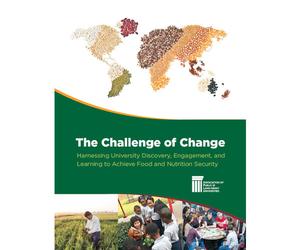Conclusions & Next Steps
Food is central to the human existence. Its production and consumption provide the energy and nutrients to produce the human capital that fuels creativity, cultures, and economies. Constraints and shocks to food and nutrition security anywhere in the food system affect all aspects of life, and they are not inconsequential. Highly functioning, robust food systems produce productive human capital and vibrant societies, while poorly functioning food systems create food insecurity that can ignite social and political instability. Increasing the efficiency of agricultural systems has always been a source of economic growth that promotes the transition from agrarian, low-income economies to robust emerging markets. But the lack of opportunity in the agricultural sector and spikes in food prices can drive migration patterns, which contributes to instability. Whether it is productive agriculture that lifts people out of poverty and food insecurity, or failing food systems that drive instability, food is fundamental to the functioning of the world.
Conclusions to Achieve Global Food and Nutrition Security
Next Steps
The challenges of food and nutrition security are embedded in complex systems, which require transdisciplinary science to achieve solutions. These themes take into account a new understanding and wide acceptance that transdisciplinary efforts are needed to solve pressing global issues, like food and nutrition security. The report also emphasizes the need for greater community engagement to identify and define research issues, and actively interact with communities throughout the entire research process. Accordingly, this report is different from past reports. Earlier reports might well have recommended a narrowly designed “top 10″ challenges, focused solely on hard science and production agriculture. With complex systems, the need for transdisciplinary science, and community engagement in mind, this report lays a new foundation for action and recommends the following next steps:




Stay Connected
X (formerly Twitter)
Facebook
YouTube
LinkedIn
RSS